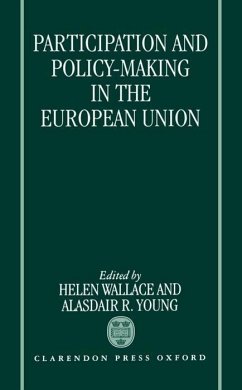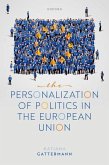The interplay between these organized interests, the member governments, and the European institutions, fostered partly by the Commission in its roles of policy initiator and arbitrator, but anticipated also in the bargaining process of the Council of Ministers, produces some policy outcomes that are different from those in national settings. In particular, the case for liberalization and privatization is often strengthened. The emerging patterns of European governance are thus starting to change the characteristics of the European political economy.
Who really participates in the European policy process? This study by a multinational team of experts examines the interplay between organized interests, member governments, and the European institutions to show that emerging patterns of European governance are starting to produce some policy outcomes that are different from those generated in national settings.
Hinweis: Dieser Artikel kann nur an eine deutsche Lieferadresse ausgeliefert werden.
Who really participates in the European policy process? This study by a multinational team of experts examines the interplay between organized interests, member governments, and the European institutions to show that emerging patterns of European governance are starting to produce some policy outcomes that are different from those generated in national settings.
Hinweis: Dieser Artikel kann nur an eine deutsche Lieferadresse ausgeliefert werden.








